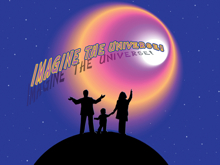Hoyle Scoffs at "Big Bang" Universe Theory

Image credit: AIP Emilio Segre Visual Archives, Clayton Collection
Fred Hoyle
British cosmologist Fred Hoyle has thrown down the gauntlet with regards to where and when all the Universe's elements were created. In a recent radio broadcast he criticized a competing theory, presented by Ukrainian-born American physicist George Gamow. He labeled Gamow's theory as a ridiculous "big bang."
Gamow's Evolutionary Theory of the Universe claims an initial stew of super-hot nuclear fusions of basic particles created all the hydrogen in the Universe in one explosive moment. The same blast caused space to expand. The ongoing expansion from that "big bang" is observed by astronomers today throughout cosmos.
Hoyle strongly disagrees with this theory. "It is an irrational process that cannot be described in scientific terms … [nor] challenged by an appeal to observation," he has written regarding Gamow's theory.
For one thing, the "big bang" requires something before the explosion. No one knows what that might be. If on the other hand, the Universe is eternal and stars are always being made and forever making heavier elements, as Hoyle suggests, there is no need for an initial explosion. Recent advances in nuclear physics seem to back Hoyle's "steady state" view, calling on the pressures and temperatures inside stars to manufacture all the heavy elements seen in the cosmos today. •



